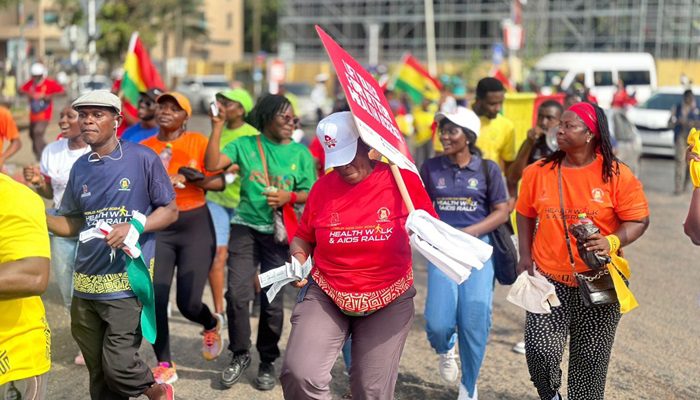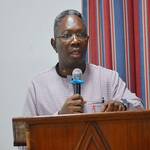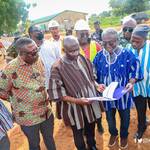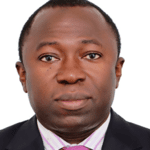The Ghana AIDS Commission has revealed that an estimated 50 people contract HIV daily, with a significant portion of new infections occurring among individuals aged 15 to 49 years.
This demographic represents the economically active population, raising concerns about the broader impact on Ghana’s workforce and national development.
Dr. Stephen Ayisi Addo, Program Manager of the National AIDS Control Programme (NACP), highlighted these worrying statistics during the 2024 World AIDS Day Health Walk and Rally held in Accra on Saturday, November 23.
He disclosed that Ghana has recorded 35,000 new infections and 900 deaths this year, emphasizing the urgency of addressing the epidemic.
The event, organized by the Ghana Health Service (GHS), the NACP, Ghana HIV & AIDS Network (GHANET), and other stakeholders, aimed to raise awareness about the disease and encourage safe sexual practices, including consistent condom use and avoiding unprotected sex.
“HIV is still a threat”
Speaking at the rally, Dr. Ayisi Addo reiterated that HIV/AIDS remains a critical public health issue in Ghana.
“HIV is still real, and all of us need to protect and guard ourselves against having unprotected sex, especially when we don’t know the status of the person we are engaging with,” he cautioned.
He outlined key transmission routes, including unprotected sexual contact, sharing contaminated needles, and mother-to-child transmission during pregnancy, childbirth, or breastfeeding.
While there is no cure for HIV, he stressed that the virus can be managed with proper medical care, including antiretroviral therapy, to prevent progression to AIDS.
Fighting stigma and promoting awareness
The rally emphasized the critical role of education and public awareness in combating the epidemic.
Dr. Ayisi Addo called for sustained educational campaigns and the removal of taxes on essential health commodities to improve accessibility.
He also addressed the damaging impact of stigmatization, which discourages individuals from seeking testing or treatment.
He urged society to create a more supportive environment to empower those living with HIV to access necessary care.
The 2030 target: A world without AIDS
Dr. Ayisi Addo referenced the United Nations Sustainable Development Goal 3.3, which seeks to end AIDS by 2030.
He called for intensified efforts to achieve this ambitious target.
“With the best measures in place, we can eradicate AIDS by the target year,” he stated, expressing hope for a future free from the disease.
Community and political support essential
The event also served as a platform for political leaders to discuss their policies on addressing HIV/AIDS.
Stakeholders urged politicians to leverage their influence in supporting eradication initiatives.
Akim Djaneye-Afreh, Executive Director of Omega Project Management Foundation, emphasized the need for compassion and support for people living with HIV.
“Supporting victims makes them feel loved and gives them hope for the future,” she said, encouraging Ghanaians to prioritize safe sexual practices and regular health check-ups.
A call for collective action
The Health Walk and Rally concluded with renewed commitments from stakeholders to intensify efforts against HIV/AIDS.
While significant challenges remain, the event underscored the importance of collaboration and collective action in making meaningful progress toward ending the epidemic by 2030.
- Friday, May 9, 2025 Newspaper Headlines - 9 May 2025
- Adangabey brightens rural kids’ future from his wheelchair - 9 May 2025
- Stanbic donates ICT equipment to UHAS for digital learning - 9 May 2025




